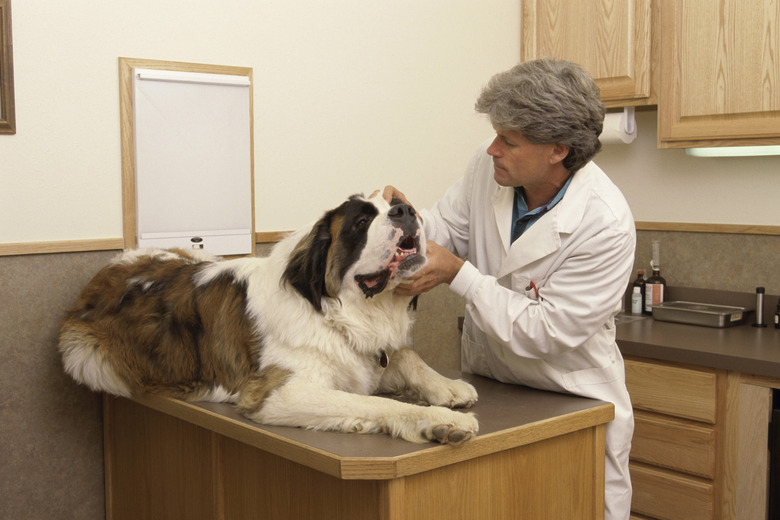How To Treat Canine Amphetamine Toxicity
If you have amphetamines in your household, which are prescribed for weight loss, ADHD, and other conditions, keep them away from your dog. If your dog ingests these medications, they can die from canine amphetamine toxicity if they don't receive prompt treatment.
Canine amphetamine precautions
Canine amphetamine precautions
If someone in your household is prescribed amphetamines, such as Adderall, Vyvanse, Desoxyn, or Dexedrine, keep the bottle in a cabinet or other secure storage area that's inaccessible to the dog. Administer the medication with the dog out of the room and the door shut so that if you accidentally drop it, you can retrieve the pill before your dog snaps it up. Many accidental poisonings can be avoided by properly securing prescription drugs. Just in case, you should be aware of what happens if a dog eats Adderall or another amphetamine.
Amphetamine poisoning symptoms
Amphetamine poisoning symptoms
If your dog ate Adderall or another amphetamine, they'll experience overstimulation of their central nervous system and cardiovascular system. Symptoms of amphetamine poisoning include agitation, aggression, heavy panting, drooling, vomiting, diarrhea, tremors, and seizures. Their heart rate and blood pressure will soar. In some dogs, amphetamine poisoning might have the opposite effect, with the animal appearing sedated. Symptoms usually appear within a half hour of swallowing the drug. Dogs who are showing symptoms of amphetamine poisoning need immediate emergency veterinarian treatment.
Amphetamine poisoning treatment for dogs
Amphetamine poisoning treatment for dogs
If you suspect your dog ingested amphetamines, but they haven't become symptomatic, rush them to the emergency veterinary hospital. The veterinarian there can induce vomiting. Your dog might receive activated charcoal to bind the toxins in their stomach, or the veterinarian might pump their stomach, a procedure called gastric lavage that removes and dilutes stomach contents with fluid. Your dog may receive intravenous fluid therapy for additional dilution of amphetamines in their system and as supportive care.
Even if your dog did not show symptoms before being treated by the veterinarian, your dog may need to stay in the hospital for a day or two for observation. During this time, the veterinarian will monitor their bloodwork to check kidney function and monitor their blood pressure and body temperature. In some cases, the veterinarian may recommend a blood test.
If your dog ate Adderall and is already symptomatic, more aggressive measures are necessary to save their life. At that point, giving them an emetic may be dangerous, especially if they are having tremors or seizures, but the emergency veterinarian will likely perform a gastric lavage and give your dog IV fluids. They'll also administer medications to control blood pressure, heart rate, tremors and hypothermia or low body temperature.
How long does Adderall last in a dog?
How long does Adderall last in a dog?
The recovery period for amphetamine poisoning depends on how much the dog consumed and how quickly they were treated by a veterinarian. It can take three days or more for a dog to show signs of recovery and they may need to stay in the hospital for several days. When they return home, they should recover in a quiet environment with little stimulation.
Is there Adderall for dogs?
Is there Adderall for dogs?
Due to the toxic nature of the drug, there are no Adderall or other amphetamine medications for dogs. If your dog is displaying behavioral issues, you can talk to your veterinarian about a treatment plan, which may include other pet-safe medications. There are some medications for humans that can be safely used for dogs, including saline solution for their eyes and topical antibiotic ointment. However, it is important to speak with your veterinarian before giving your dog any medication. Your veterinarian can tell you which products are appropriate for your dog based on their health history and symptoms.


